
Hormonal acne usually occurs due to hormonal fluctuations that happen during puberty. The main hormone behind this acne is testosterone. When testosterone levels rise this leads to increased sebum production, altered cellular activity, and the bacterium, Propionibacterium acnes proliferates at the hair follicle which all amounts to blockage and inflammation.
Acne symptoms include blackheads, whiteheads, and cysts, all of which mostly appear on the upper part of the body. Hormonal acne can affect everyone of all ages but is especially prevalent in women due to the hormonal changes they experience during pregnancy and menopause.
Hormonal acne often results in, or accompanies, poor mental health as it’s associated with lower self-esteem and worsens if the person already suffers from depression.
Acne is typically treated with powerful topical creams that can irritate the skin and prolonged use of antibiotics can lead to antibiotic resistance. Fortunately, there are supplements that are free of these effects and treat hormonal acne naturally.
The Most Effective Supplements For Hormonal Acne
Niacin For Acne
When exploring the efficacy of novel hormonal acne treatments, researchers applied niacin-containing products topically in gel form. Topical 4% nicotinamide is very effective at treating both the symptoms and severity of hormonal acne. In fact, if you suffer from acne and have oily skin, nicotinamide is the recommended topical gel for treatment.
1-Methylnicotinamide (MNA+) is a metabolite of nicotinamide and has been shown to reduce inflammation associated with hormonal acne. Interestingly, topical MNA+ is 100x more potent than nicotinamide and also has no side effects. The effects of MNA+ and nicotinamide have not yet been compared.
Zinc For Acne
Zinc is a natural immunological mediator and targets immune cells to decrease inflammation. Studies have shown that zinc sulphate, compared to placebo treatment, was slightly more effective in improving acne. However, zinc in the form of zinc gluconate was more successful and may have potential for helping pregnant women due to its non-toxic profile, unlike other acne drugs.
Zinc also targets the source of the problem, hormones. Zinc helps boost testosterone levels and manages estrogen levels. Studies discovered that acne patients tend to have lower serum zinc levels which may explain this hormonal imbalance, though this observation remains open to speculation.
Zinc is often taken orally but can be incorporated in topical creams. Generally, from a number of studies the results concerning zinc efficacy have been conflicting so it isn’t guaranteed that zinc will always help.
Inositol Acne
Hormonal acne often accompanies other conditions which cause hormonal imbalances, such as poly-cystic ovarian syndrome (PCOS) in women. Insulin resistance also often occurs with PCOS and is thought to cause acne as it boosts proinflammatory formation. Through restoring healthy hormonal and insulin metabolism, a study found that myo-inositol, an isoform of inositol, improved acne severity in PCOS patients following 6 months of therapy.
Inositol is usually taken orally in powder or capsule form.
Milk Thistle Acne
Silymarin, a flavonoid derived from milk thistle (Silybum marianum), has anti-inflammatory and antioxidant properties. In vitro studies have shown that two of silymarin’s active ingredients, silymin and silychristin, decreased proinflammatory cytokines which may translate to treating inflammatory acne.
As an antioxidant, silymarin removes harmful free radicals which would normally disrupt cellular turnover and increase acne prevalence. A study deemed this antioxidant effect strongly significant for treating acne after 8 weeks.
In conjunction with doxycycline – an antibiotic often used for treating acne – silymarin showed synergistic effects following 2 months of treatment, improving doxycycline drug efficacy.
You can apply silymarin topically as a serum or orally.
NAC Acne
N-acetylcysteine (NAC) is a precursor for cysteine which produces the powerful antioxidant, glutathione. Similar to silymarin, NAC also inhibits the production of inflammatory cytokines. NAC is taken either orally, in IV form, or as a topical cream.
One study found that NAC reduced acne symptoms after taking 1200mg of NAC daily for 12 weeks. Though the cohort was small, the theory behind NAC’s effect strongly suggests its potential for treating acne.
A recent systematic review discovered that NAC may also have antibacterial qualities, however, this effect has only been shown in vitro.
Our Favorite Hormonal Acne Supplements, Review
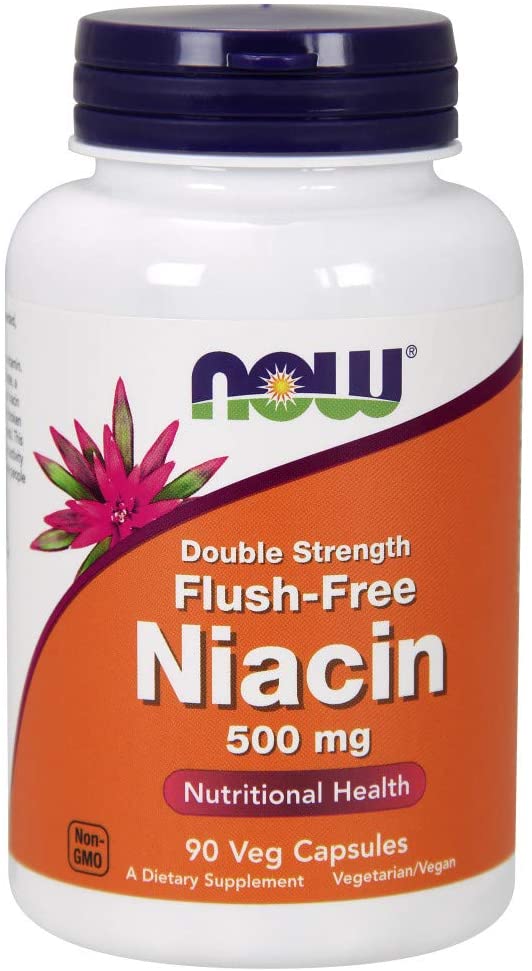
Best Niacin Supplement For Acne
NOW Supplements, Niacin (Vitamin B-3) 500 mg, Flush-Free
NOW Niacin supplements contain 90 capsules per bottle. Each capsule contains 500 mg of niacin in slow-release form to avoid the common skin flushing side effect of niacin.
For an effective dose, take 1 capsule daily and observe the effects after regular consumption for 3 weeks. If you feel you aren’t seeing an improvement and have no side effects, you should increase the doseーone study noticed improvements with 2000mg.
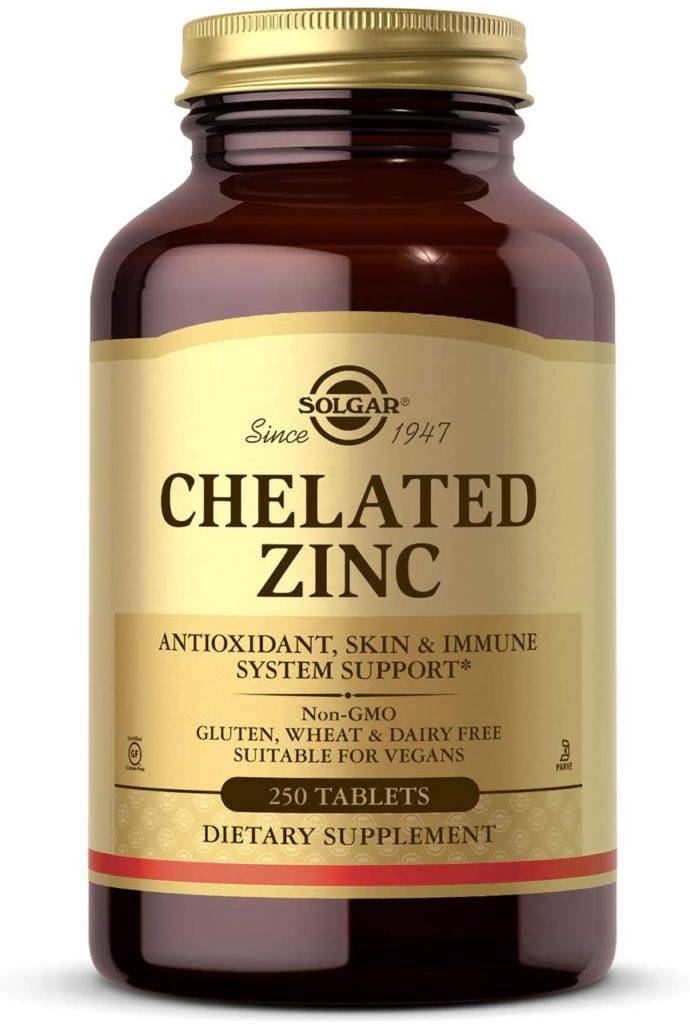
Best Zinc For Hormonal Acne
Solgar Chelated Zinc, 250 Tablets
Solgar Chelated Zinc is dosed at the right levelーmany zinc supplements contain 50 mg which is too high for most people. At 250 servings a bottle, this is a very cost-effective supplement. The tablets are quite big but can be cut with a pill-cutter to make them easier to swallow.
Several reviewers with hormonal acne have sung their praises about this supplement, especially for treating cystic acne, having found their acne cleared after 3-4 weeks.
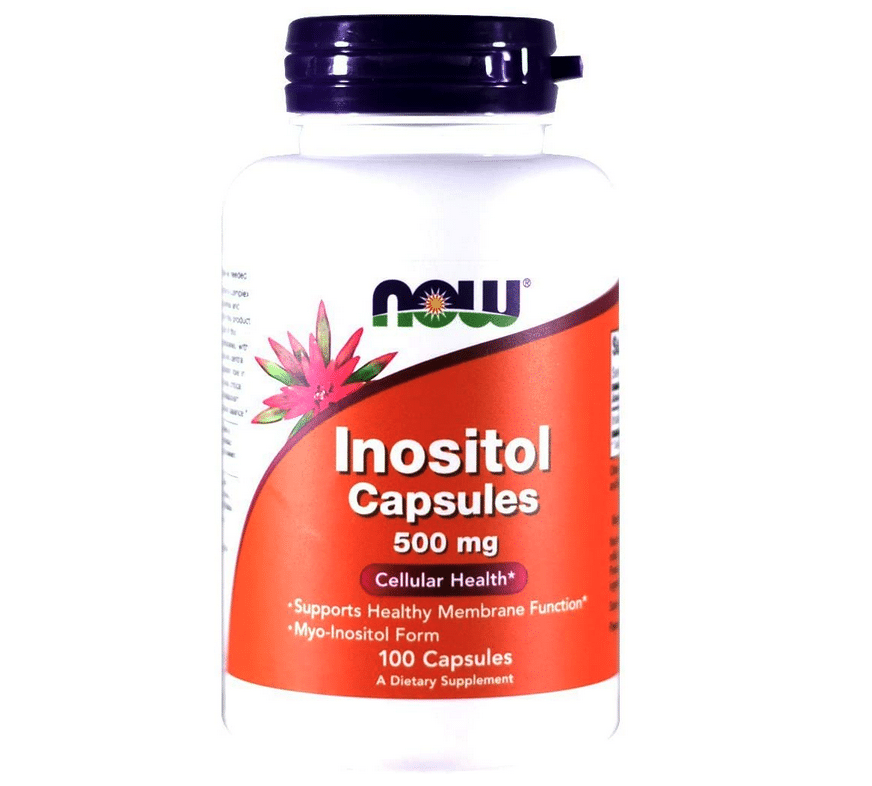
Best Inositol For Acne
NOW Inositol 500mg
Inositol by NOW provides 100 capsules per bottle that are available to buy in packs of 3. The limited number of studies exploring inositol as a treatment for acne used 2000 mg daily.
With this in mind, take 4 capsules throughout the day. Studies have used 6 months as a benchmark for seeing results so taking this supplement requires a long-term commitment.
Aside from inositol, the capsules contain magnesium stearate which can trigger diarrhea if you’re sensitive to it.
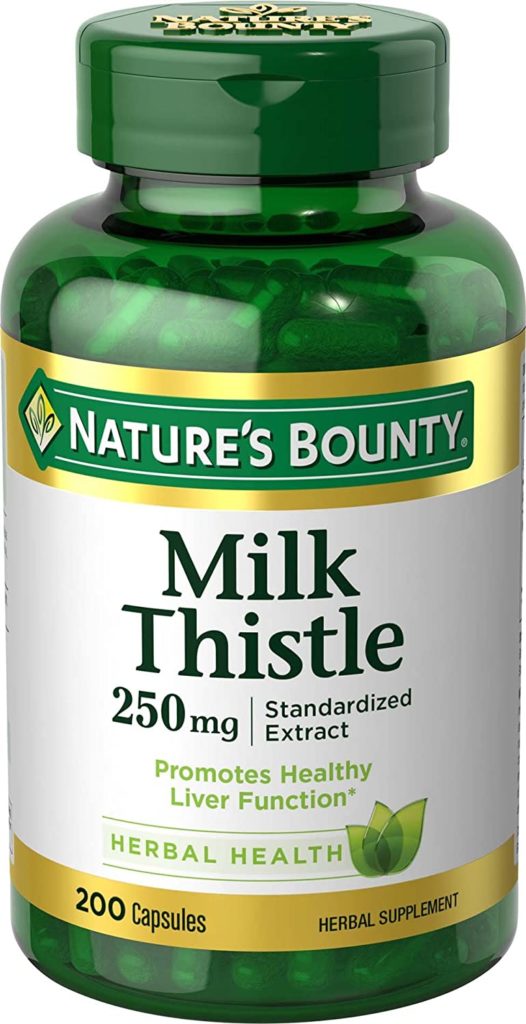
Best Milk Thistle For Acne
Nature’s Bounty Milk Thistle Pills 250mg
Nature’s Bounty Milk Thistle is straightforward to administer. You only need to take 1 capsule a day to achieve the dose used in studies. This means you can (at most) get 200 servings out of each bottle, though you may have to increase the dose if you don’t notice an effect after 4 weeks.
Please note that these capsules aren’t vegetarian. Unfortunately, this product also contains more fillers than usual which some people may struggle to digest.
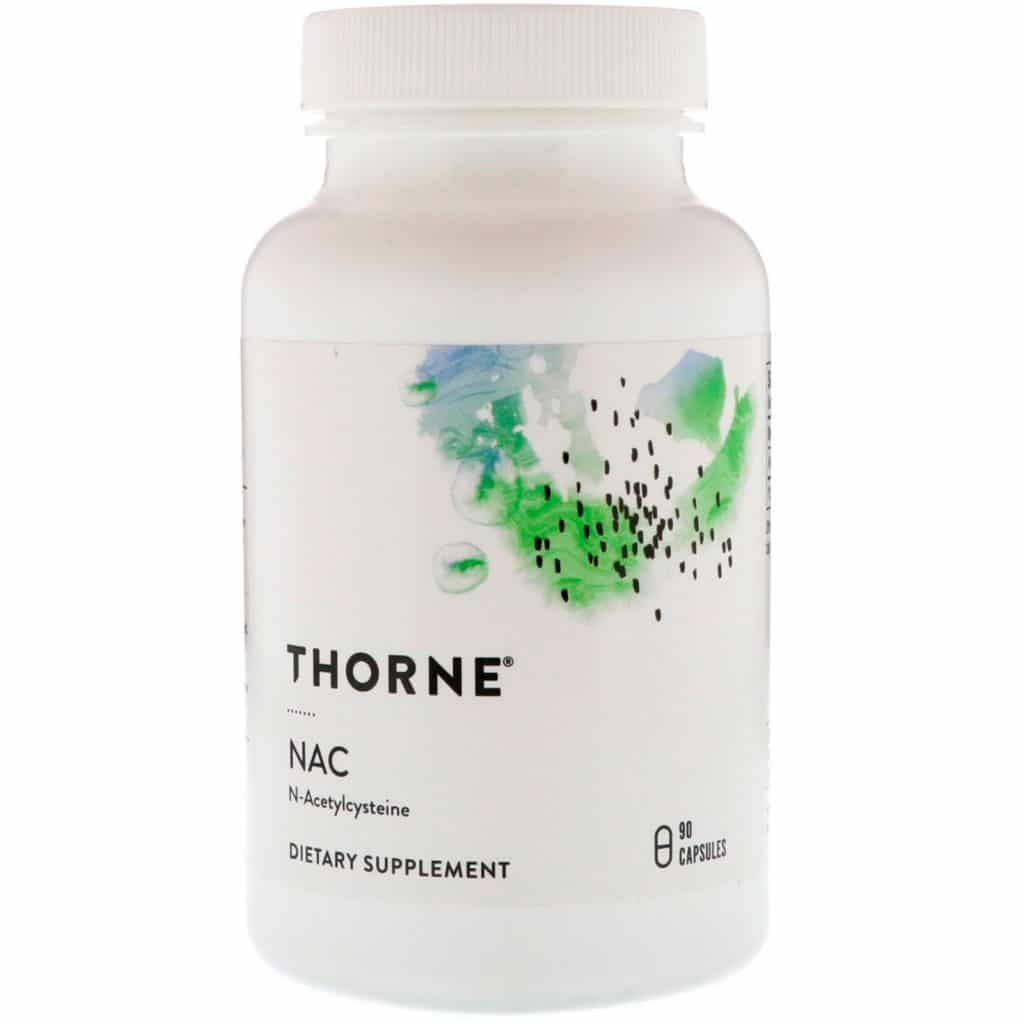
Best NAC Supplement For Acne
Thorne NAC (N-Acetylcysteine)
Thorne’s NAC contains 90 capsules per bottle. Each capsule provides 500 mg of NAC, so we recommend taking between 2-3 capsules over the course of the day to notice a significant difference. These capsules are much cleaner than others in this review, with cellulose as the primary filler, making these capsules vegetarian.
There aren’t reviews on its effects on acne, but one reviewer reported that their eczema improved, showing NAC’s potential for reducing inflammation. .
Editor’s note: we are regularly updating this review. If you see any problems, weird interpretations of the data, or just want to say hi, please reach out to hello@the-unwinder.com.
Photo by Ivan Aleksic on Unsplash
